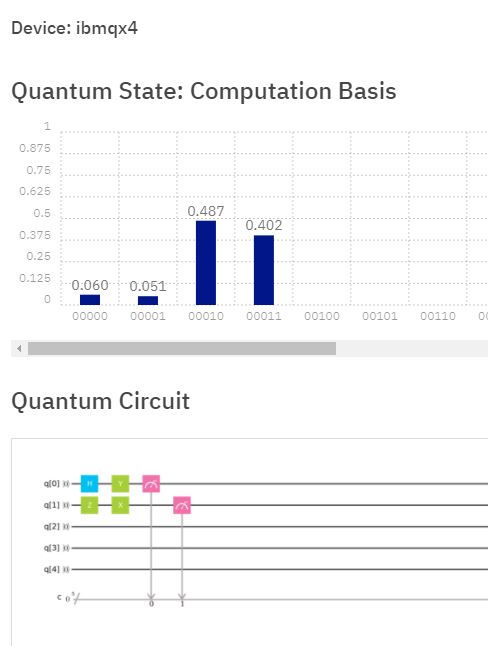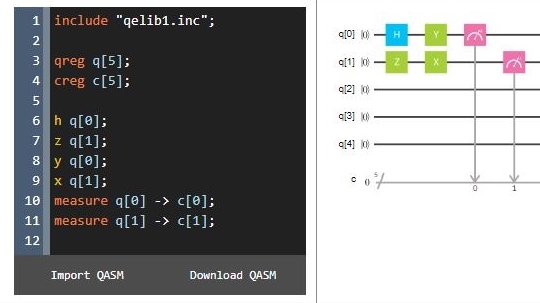Chapter 17 – Quantum Computers That Think
1. Beyond the hype, no quantum computer exists. (Yes | No)
No. False. You can already run a quantum computer on IBM Q's cloud platform.
https://www.research.ibm.com/ibm-q/
The following screenshot is the result of a real IBM quantum computer calculation I ran on a quantum score explained in the chapter:

IBM quantum computer calculation
2. A quantum computer can store data. (Yes | No)
No. Instability prevents any form of storage at this point.
3. The effect of quantum gates on qubits can be viewed with a Bloch Sphere. (Yes | No)
Yes. A Bloch sphere will display the state of a qubit.
4. A mind that thinks with past experiences, images, words, and other bits of every day like stored in memory will find deeper solutions to problems that mathematics alone cannot solve. (Yes | No)
No. False. Many researchers believe that mathematics alone can solve all human problems.
Yes. True. Mathematics alone cannot replace deep thinking. Even if computers have incredible power and can beat human players at chess, for example, they still cannot adapt to new situations without going through a design and training process. Concepts need to be added and experienced (memory as well).
I bet that machine mind concepts will become progressively more mainstream to solve deep thinking problems.
5. A quantum computer will solve medical research problems that cannot be solved today. (Yes | No)
Yes. There is no doubt about that. The sheer computing power of a quantum computer can provide exponential DNA sequencing programs for epigenetic research.
6. A quantum computer can solve mathematical problems exponentially faster than classical computers. (Yes | No)
Yes. Classical computers function at 2 x n (number of bits) and quantum computers run at 2n (n being the number of qubits)!
7. Classical computers and smartphone processors will soon disappear and smartphone processors also. (Yes | No)
No. Quantum computers require such a large amount of space and physical stability that this will not happen in the near future. Furthermore, classical computers and smartphones can store data. Quantum computers cannot.
8. A quantum score cannot be written in source code format but only with a visual interface. (Yes | No)
No. False. IBM, for example, can swap the quantum from score to QASM interface or display both, as shown here:

QASM interface
9. Quantum simulators can run as fast as quantum computers. (Yes | No)
Certainly not! A simulator just shows how a quantum score would behave on a real quantum computer. Although the simulator can help build the score, a quantum computer will run exponentially faster than the simulator.
10. Quantum computers produce intermediate results while they are running calculations. (Yes | No)
No. This is not possible. The qubits are too unstable. Observing them makes the system collapse. However, simulators such as Quirk come in handy. Since they are not real, intermediate results can be displayed to design a quantum score.































































